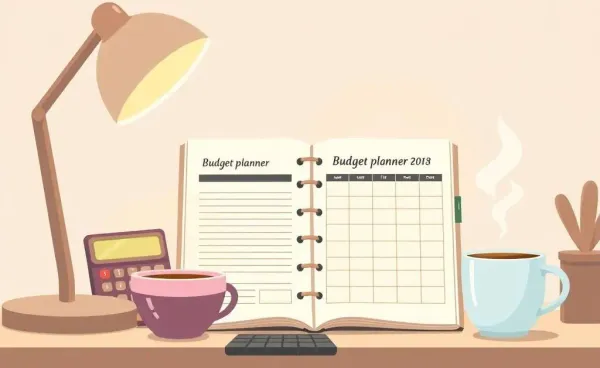Mastering the Art of Budgeting: A Practical Guide for Financial Harmony
Unlock financial freedom with budgeting tips and insights in this engaging guide.

Why Budgeting Matters
Ever felt like your paycheck disappears faster than a popsicle in the sun? If so, you're not alone. Budgeting is often seen as a chore, but it can unlock a whole new world of financial freedom. By setting a budget, you're taking the reins of your finances, rather than just going along for the ride.
In this guide, we'll explore how to streamline your budget, tackle expenses, and manage savings for a balanced approach to money management.
Understanding Your Financial Landscape
Before diving into budget creation, take a moment to evaluate where you currently stand financially. Here’s what you could consider:
- Identify your monthly income sources.
- List all recurring expenses (like rent or mortgage, utilities, and subscriptions).
- Account for variable expenses.
- Note down any debts or loans.
Once you have a clear view, you can start piecing together a realistic and tailored budget.
Creating a Budget That Works
Here’s a simple, tried-and-true budgeting method: the 50/30/20 rule. Allocate 50% of your income for needs (rent, utilities), 30% for wants (dining out, entertainment), and 20% towards savings and debt repayment.
My friend Sarah once swore budgeting was impossible until she gave this method a try. Within a few months, she not only had a clearer perspective on her spending habits but also a tidy savings cushion!
Tools That Can Help
Technology can be your ally in perfecting your budget. Here are a few options:
- You Need a Budget (YNAB): Helps you allocate every dollar to maximize savings.
- Mint: Automatically tracks expenses and income, providing a comprehensive financial overview.
- EveryDollar: A simple tool for tracking all your expenses manually.
Staying Flexible and Adaptable
Life is unpredictable, and so is your budget from time to time. It’s important to regularly assess and adjust your budget to keep it effective without being too restrictive. Check in with your financial goals monthly to stay on track.
Conclusion: Where to Go From Here?
Budgeting doesn’t have to be a daunting task. With patience and a bit of practice, you can transform your financial habits and achieve harmony in your finances. Remember, it’s not about how much you earn, but how wisely you spend it.
Ready to dive into your financial journey? What part of your budget will you start optimizing first? Let us know in the comments!




